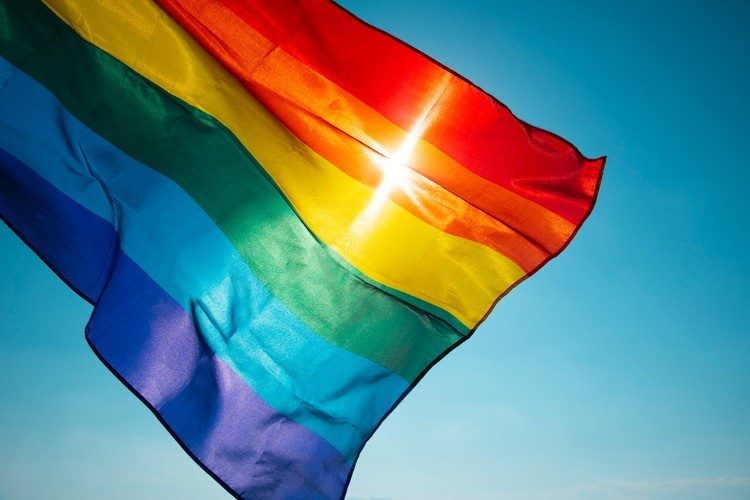
The Left wants to sell a narrative of LGBT ideology being “inevitable,” painting proponents of traditional biblical morality as belonging to the dustbin of history.
But developments in various countries reveal that the opposite is true: People are pushing for a return to traditionalism and rejecting LGBT practices. Now, the mainstream media is spinning a story of human-rights abuse to try to win the public back to its side.
One battle ground of this culture is Nigeria, where law-enforcement authorities are carrying out its law criminalizing homosexual practices. According to the Associated Press, the country’s paramilitary organization on Monday announced the arrest of more than 70 individuals — 59 men and 17 women — in the northern Gombe state on charges of “holding homosexual birthdays” and “the intention to hold a same-sex marriage.”
Back in August, more than 60 people were similarly detained in the southern state of Delta at what was described as a gay wedding.
Isa Sanusi, director of Amnesty International Nigeria, decried the arrests, telling AP that it shows “an uptick in this trend of witchhunt and gross violation of human rights.”
Nigeria’s Same Sex Marriage Prohibition Act of 2013 has been the object of condemnation by LGBT proponents, but is highly popular among the country’s population of more than 210 million. The law stipulates that same-sex marriage is punishable by up to 14 years in prison; it has resulted in many homosexuals leaving the country.
Nigeria is one of the 30 African countries (on a continent of 54 nations) that criminalizes homosexuality with wide public support. Earlier this year, Uganda enacted the death penalty for for those guilty of “aggravated homosexuality,” which is defined as acts that include sexual relations with children and the spreading of HIV to others. The law elicited vehement backlash by the LGBT lobby abroad, but the legislation has enormous support among Ugandans.
In another blow to LGBT ideology, South Korea’s constitutional court on Thursday upheld a law banning same-sex relations in the military on the grounds that such relations can compromise combat readiness. The Korean armed forces’ policy establishes that service members can be punished with up to two years in prison for participating in homosexual relationships. The law has been upheld four times since 2002.
Boram Jang, Amnesty International’s East Asia researcher, released a statement blasting the decision, saying, “This continued endorsement for the criminalization of consensual same-sex acts within the Korean military is a distressing setback in the decades-long struggle for equality in the country.”
Iraq enacted a measure against homosexuality in August, as covered by The New American:
On August 8, Iraq’s official media regulator instructed all media and social-media companies operating within its territories to cease using the term “homosexuality” and substitute it with “sexual deviance,” according to a document from the regulator. With U.S. influence in Iraq waning, this latest piece of news illustrates how traditional Islamic values are staging a comeback in the Arab state.
Also in August, a survey published by independent sociological research company Russian Field, which for years has been documenting the overall attitude of the Russian people toward the LGBT community, found that the last decade has seen a notable rise in the number of Russians who believe the “rights” of LGBT individuals should be restricted. Specifically, 62 percent of respondents this year expressed support for limiting “gay rights” and 55 percent supported restricting “transgender rights.”
By contrast, per previous polling, only 42 percent of Russians in 2021 opposed “gay rights,” while that number was still lower — down at only 19 percent — in 2013.
The majority of those who took the poll said they aligned with traditional Russian values such as “patriotism, family, respect for elders, love for your country, Orthodox Christian faith, freedom, and justice.” A number of respondents said they were “disgusted” by values such as “democracy, tolerance, LGBTQ, homosexuality, and same-sex marriage.”
Last year, Russian President Vladimir Putin signed a law that slaps heavy fines on anyone found guilty of promoting “non-traditional sexual relations,” pedophilia, and transgenderism through media such as film, books, and the internet.
Hungarian Prime Minister Viktor Orbán has spearheaded similar measures in his country. Orbán and his Fidesz Party have passed legislation prohibiting LGBT and trans propaganda from being presented to minors.
LGBT proponents are outraged at what they say is the rise of homophobia. One area in which they hope to combat this rise is on social media, particularly X, which has relaxed its policies somewhat since the platform was purchased by Elon Musk a year ago.
For example, LGBT proponents decry the fact that Musk removed a ban on using incorrect names or pronouns for transgenders.
A spokesperson for the LGBT advocacy group GLAAD (initially an acronym for the Gay & Lesbian Alliance Against Defamation) sent an email to NBC News stating, “The user safety experience on X/Twitter has steadily declined over the past year — for LGBTQ people, for all historically marginalized groups, and for everyone, including brands and advertisers who understandably don’t want their ads appearing next to extremist hate content.”
It appears the LGBT debate isn’t as “settled” as the Left would have the public believe.



